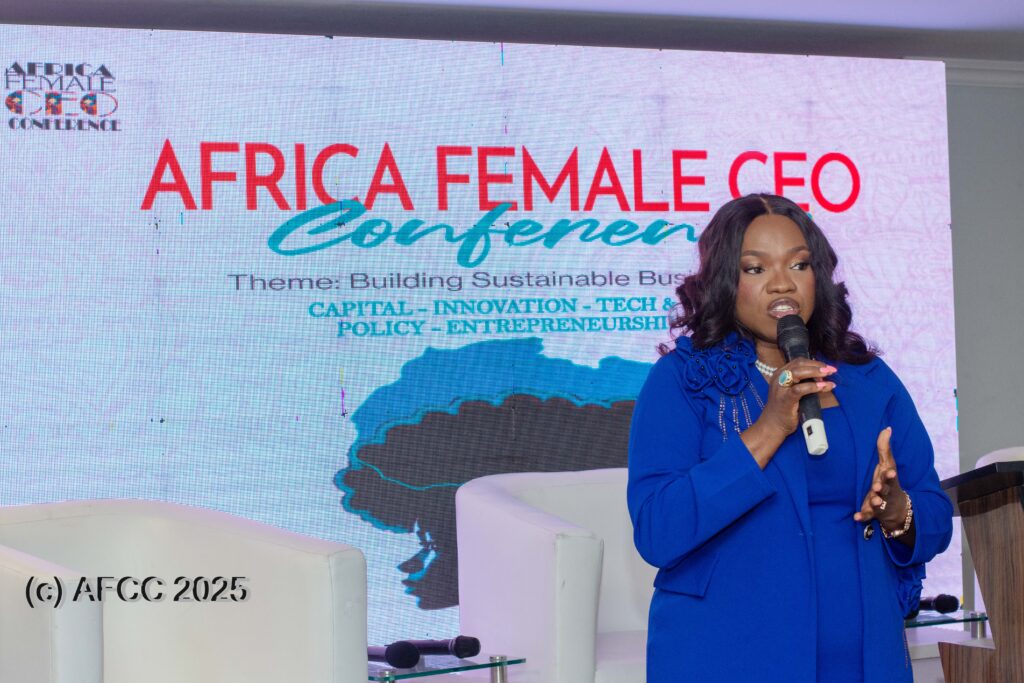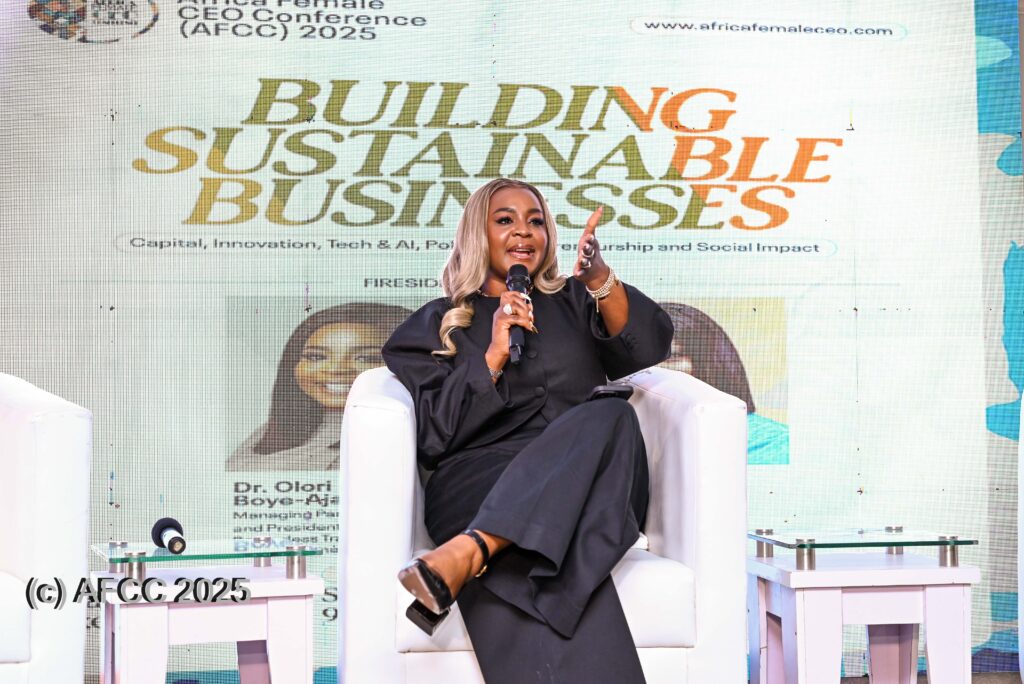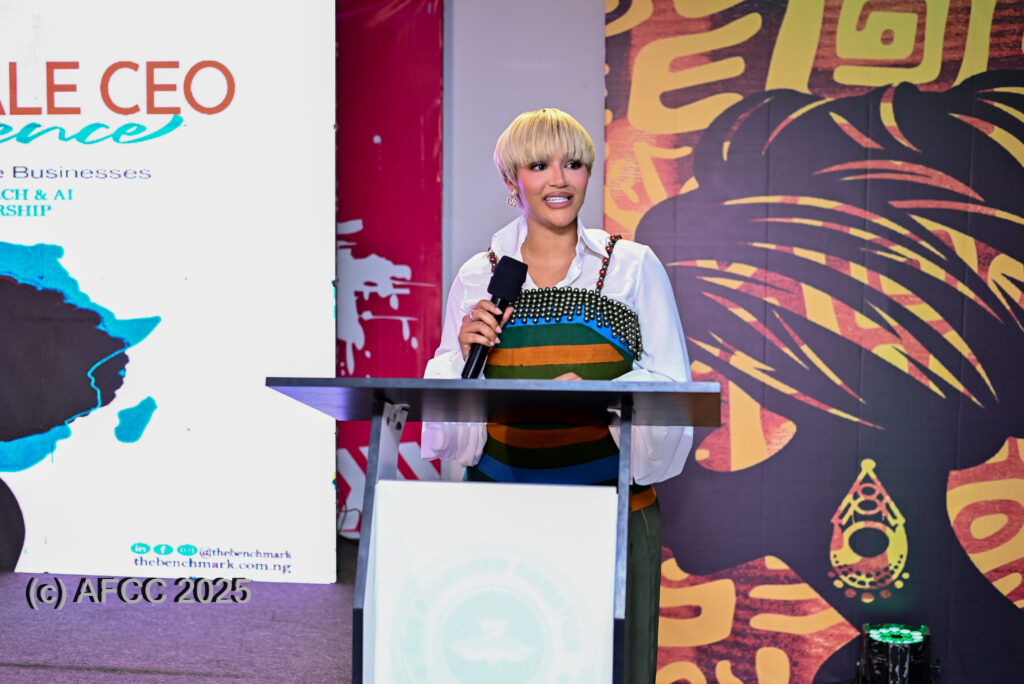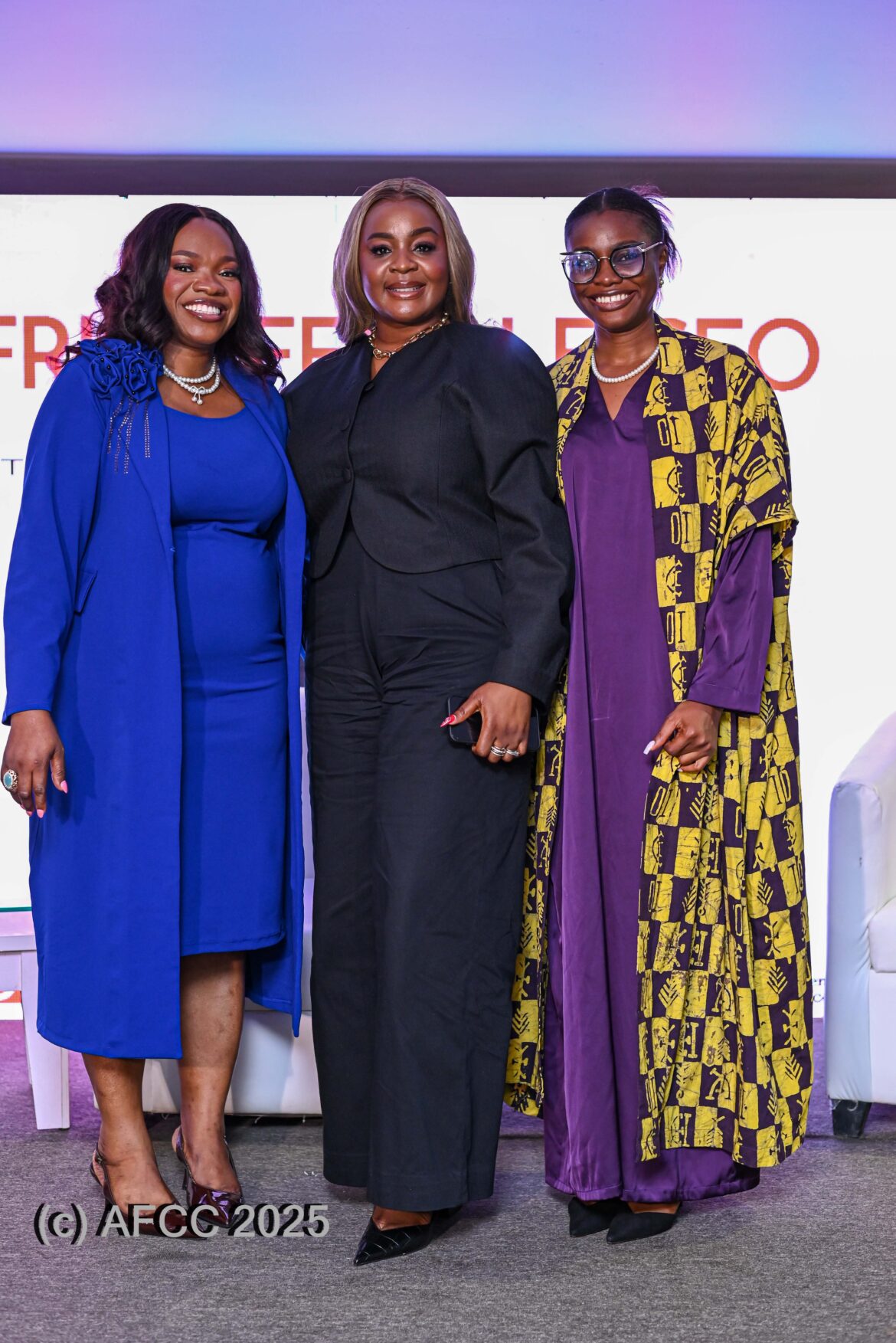The inaugural Africa Female CEO Conference (AFCC), 2025, convened some of the continent’s most dynamic business leaders, innovators, and policymakers on Thursday, September 18, at the Rose of Sharon Centre, Ikeja GRA, Lagos. The message was clear: African women must dare to dream boldly, expand beyond borders, and build businesses that will endure as legacies for generations to come.
Organised by The Benchmark, a subsidiary of Staeliora Media Ltd, the one-day summit was held under the theme “Building Sustainable Businesses.” The event featured keynote addresses, fireside chats, and panel sessions on issues central to women’s entrepreneurship in Africa, including global market access, ethics of sustainability, and the power of visionary leadership.
“Your dreams are valid,” said Ishioma Imokhai-Bello, Convener of AFCC, in her closing remarks. She shared the journey of bringing the vision of AFCC to life, encouraging participants to pursue their own. “No matter how daunting that dream is, push for it. If I could do this, so can you,” she said.

In a fireside chat, Dr Olori Boye-Ajayi, Managing Partner of Borderless Trade & Investments, challenged women to embrace international trade opportunities and rethink their business models. “The opportunities are in the products you are not thinking of,” she said, citing shea butter as an example of African goods in high demand. She also stressed the potential of exporting services, from consulting to digital content, as faster routes to global markets.
Addressing finance, Boye-Ajayi introduced the “3 Cs” – committee, credibility, and connections – as crucial factors for unlocking capital. “If I check your phone today and don’t see decision-makers on it, you have a long way to go,” she told participants, urging them to build networks and adopt scalable models such as franchising and partnerships.

Keynote speaker Dr Elizabeth Jack-Rich, Businesswoman, Philanthropist, and Founder of Elin Group, urged participants to expand their definition of sustainability. “True sustainability is broader than numbers on a balance sheet. It is about people, purpose, and long-term value. It is not just what we build today, but the legacy we leave tomorrow,” she said.
Jack-Rich highlighted the ripple effects of women-led enterprises, noting that female CEOs often employ more women, support families, and contribute to the strengthening of local economies. Despite persistent barriers such as limited access to finance and entrenched cultural biases, she said, “Still, we rise. Each time a female CEO overcomes these barriers, she paves the way for many others. Our leadership is not only a personal victory, it is a societal transformation.”

A platform for the future
By the end of the day, AFCC 2025 had set a precedent for what is expected to become one of Africa’s leading platforms for women in leadership. The conference underscored that African female CEOs are not only participants in the economy but also architects of a new growth model rooted in resilience, inclusivity, and vision.
Imokhai-Bello expressed gratitude to partners, speakers, and delegates, noting that AFCC 2025 was only the beginning. Plans are already underway for AFCC 2026, which will build on this momentum.
With Africa poised as the world’s next global frontier, the conference affirmed that women leaders will be central to shaping its future. As the discussions in Lagos made clear, the call is no longer for women to join the table. It is for them to build it, sustain it, and leave it standing for generations to come.



